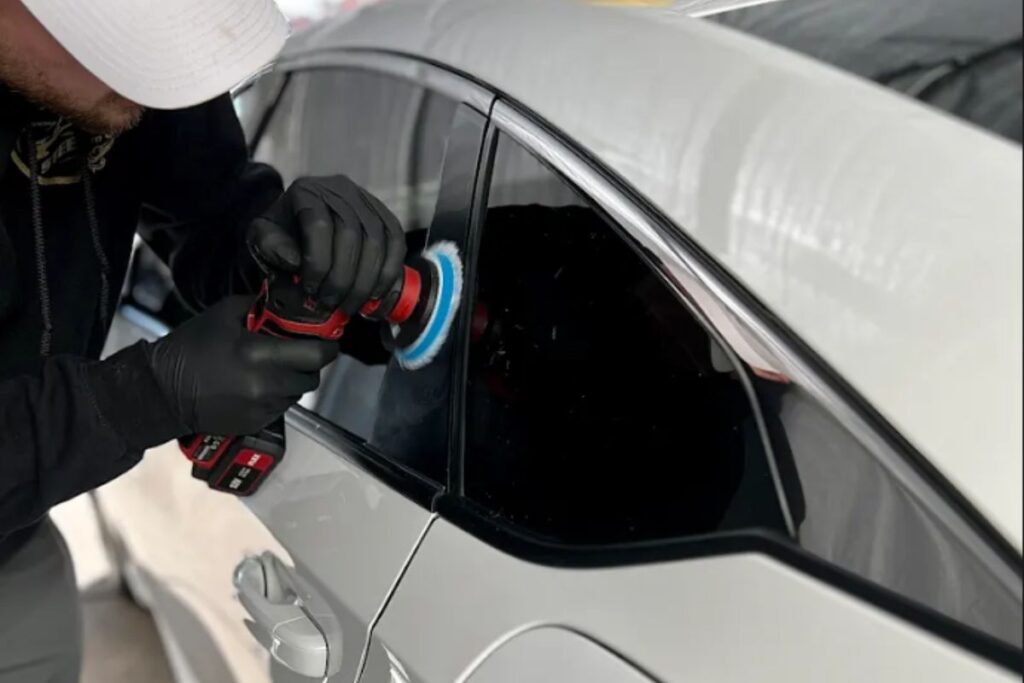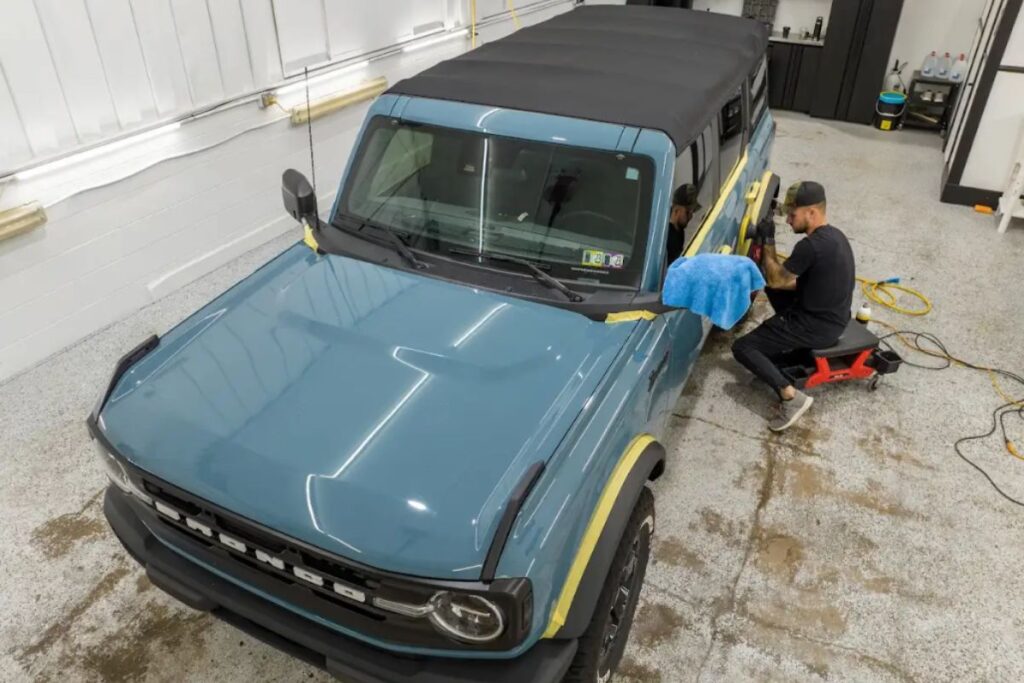Car paint defects can mar the appearance of even the newest vehicles, diminishing their aesthetic and value. Improper washing techniques, environmental contaminants, and exposure to harsh elements often cause common issues such as swirl marks, oxidation, and scratches. But don’t worry much about that, paint correction can restore the paintwork by removing these imperfections, resulting in a flawless, mirror-like finish.
In this blog, Steel City Auto Spa will explore the types and causes of car paint defects and explain how professional paint correction can help maintain your vehicle’s pristine look and protect your investment.

Restore your car’s beauty: Professional paint correction at Steel City Auto Spa
Common car paint defects: A comprehensive guide to identifying issues
Car paint defects can significantly impact the appearance and value of your vehicle. Understanding these defects and their causes can help you maintain your car’s finish and take preventive measures. Regular maintenance and proper care techniques can extend the life of your car’s paint and keep it looking pristine. Here are some of the most common car paint defects:
Swirl marks
Swirl marks are fine scratches that appear on the surface of the paint, often caused by improper washing or drying techniques. They look like circular patterns, especially visible under direct light. Using abrasive sponges or towels, or washing the car with dirty water can introduce these marks. Preventing swirl marks involves using a two-bucket washing method, microfiber towels, and gentle, circular motions during washing and drying.
Oxidation
Oxidation occurs when the paint breaks down due to prolonged exposure to sunlight and air. It causes a chalky or faded appearance on the car’s surface. UV rays and oxygen are the primary culprits, deteriorating the paint’s protective layers over time. To prevent oxidation, regularly waxing the car and using paint sealants can provide a protective barrier against the elements.
Related: How much does paintless dent repair cost?
Water Spots
Water spots are marks left by mineral deposits from water that evaporate on the paint surface. They are often the result of hard water, rain, or sprinkler systems. These spots can etch into the paint if not removed promptly, leaving a noticeable blemish. To avoid water spots, always dry your car after washing it and avoid parking near sprinklers. Using a water filter for your hose can also help reduce mineral deposits.
Bird dropping etching
Bird droppings contain acidic substances that can damage car paint. When left on the surface for too long, they can eat through the paint layers, leading to etching and discoloration. Immediate removal of bird droppings with a gentle cleanser and a soft cloth can prevent this damage. It is a good practice to keep a quick detailer spray in your car for such emergencies.
Paint chipping
Paint chipping occurs when small paint pieces peel off due to impacts from road debris such as rocks, gravel, and sand. These chips often appear on the front bumper, hood, and side panels. Consider applying a paint protection film (PPF) or a ceramic coating to protect your car from paint chipping. Regularly inspecting and touching up chips can also prevent them from worsening.
Fading
Fading is the loss of color intensity, usually caused by UV radiation and environmental factors like pollution and chemicals. Over time, the paint may look dull and lifeless. Regular waxing and UV-protective products can help maintain the vibrancy of your car’s paint. Parking in shaded areas or using a car cover can also minimize exposure to harmful elements.

Understand and prevent common car paint defects to protect your vehicle’s value
Solution for car paint defects: Paint correction
Restoring your car’s paint job means you’re getting your “mobile home” amazing looks back. Paint correction is one of the most effective solutions to restore your car’s finish. Here’s an in-depth look at paint correction and how it can address various paint defects:
Use: Paint correction restores the paint’s clarity by removing imperfections like swirl marks, scratches, and oxidation.
Features of paint correction
- Removes minor to severe defects: Paint correction can eliminate a range of imperfections, from fine swirl marks to more severe scratches and oxidation. The process involves using abrasive compounds and polishing pads to carefully remove a thin layer of the clear coat, effectively leveling out the surface.
- Enhances paint’s smoothness and gloss: The correction process not only removes defects but also enhances the paint’s overall smoothness and gloss. By meticulously polishing the paint, the surface becomes more reflective, resulting in a deep, mirror-like finish.
- Prepares the surface for protection application: After paint correction, the surface is perfectly prepped for the application of protective layers such as wax, ceramic coatings, or paint protection films (PPF). This step ensures that the protective products adhere properly and provide maximum benefits.
Read more: WHERE TO GET PAINT CORRECTION IN PITTSBURGH, PA?
Benefits of paint correction
- Restored aesthetic appeal: Paint correction significantly enhances the visual appeal of your car, making it look almost brand new.
- Increased resale value: A well-maintained and defect-free paint job can increase your car’s resale value.
- Enhanced protection: By preparing the surface for protective applications, paint correction ensures that subsequent protective layers perform optimally.
Paint correction is a meticulous process that requires skill and expertise. For the best results, it’s advisable to seek the services of professional detailing experts who can assess and correct your car’s paint to achieve a flawless finish.
Premier paint correction services at Steel City Auto Spa in Pittsburgh
Steel City Auto Spa offers expert paint correction services in Pittsburgh to restore your vehicle’s paint to its original brilliance. To schedule an appointment, visit us at 533 Rochester Road, Pittsburgh, PA 15237, call 412-732-7828, or email brett@steelcityautospa.com.
